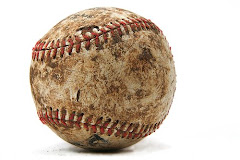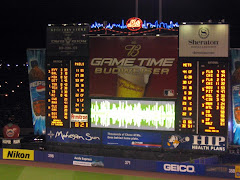
By RALPH BRANCA
I’ll never forget the winter of 1947. Because of the Dodgers’ plan to sign Jackie Robinson as the first African-American in the majors, we avoided Florida and spent training camp in Havana. This was the great postwar Brooklyn team of Pee Wee Reese, Dixie Walker, Pete Reiser and Hugh Casey. Our manager was the indomitable Leo Durocher.
Gil Hodges was back from a long stint in the Marines. He was our second-string catcher. (We were a year away from recruiting Roy Campanella.) It was Gil who introduced me to a rookie from Compton, Calif.
“Ralphie,” Gil said, “meet Duke Snider.”
His handshake was firm and his eyes were clear. He had a smile and an irresistibly upbeat spirit. We were both 21 and eager to make it in the big leagues.
We began talking baseball, but, typical of Duke, he didn’t discuss himself. He wanted to tell me how, back in Los Angeles, he had seen Jackie excel at football, baseball, basketball and track. He trumpeted Jackie’s athleticism and was thrilled at the prospect of playing with him. Duke never even hinted at his own skills.
That winter, we played exhibition games in the Caribbean against the Montreal Royals, the Dodgers farm club to whom Jackie was signed. As it became clear that Branch Rickey, our general manager, was going to make Jackie a Dodger come opening day, a few veterans circulated a petition arguing that an African-American had no place on our team. Duke was outraged and perplexed.
“Are they crazy?” he said to me. “Besides being a great guy, he’s the best thing that’s ever happened to this team.”
Like most of us, Durocher supported Jackie and the petition wound up in the garbage, where it belonged.
In 1948, Duke’s sophomore year, Campy came on board with pitchers Carl Erskine and Preacher Roe. In 1949, when Don Newcombe became a Dodger, Duke came into his own. He hit .292 and had 23 home runs. He commanded center field and was crowned the Duke of Flatbush, a title he will hold forever.
Along with Mickey Mantle and Willie Mays, Duke formed New York’s golden center-field threesome. I’m prejudiced, but of the three, Duke was the most nimble fielder and possessed the most accurate arm.
From 1947 to 1957, the Dodgers won six pennants and one World Series, finally besting the Yankees in 1955 as Duke hit four homers and drove in seven runs. Without Duke, who holds the franchise career records of 1,271 runs batted in and 389 homers, the Brooklyn Dodgers would not be the Brooklyn Dodgers.
On a team of extraordinary individuals, Duke stood out. He had intelligence, integrity and wit. He played hard, and superbly, day in and day out. His long career is a model of athletic excellence.
In 1980 at his Hall of Fame induction, I was there with many of his teammates to cheer him on. We weren’t surprised when he talked about how great we were and failed to mention his own remarkable accomplishments.
The Brooklyn brotherhood never died. We kept up over the years. We would have dinner when, as the broadcaster for the Montreal Expos, Duke came to New York. His knowledge of the game grew over the years. I loved talking baseball with Duke. He had his opinions without being opinionated. He genuinely wanted to hear what you had to say.
In the end, when he was living in a nursing home, we continued to talk. In the last weeks, when I learned he was failing, I contacted his beloved wife, Bev, who was by his side. I wanted to tell Duke just how much I admired him. I wanted him to know what a privilege it was to call him my friend. At that point, all Bev could do was put the phone to his ear. He died last Sunday at 84.
I still see Duke as a young man. I see him out there in center field, racing past the ads for Van Heusen shirts and Gem razors, while executing a brilliant running catch. I see him at the plate, crushing Robin Roberts’s fastball and sending it soaring high over that crazy right-field wall at Ebbets Field. I see him rounding the bases. I see him smiling. I feel the joy of his sweet, happy soul.


























No comments:
Post a Comment